
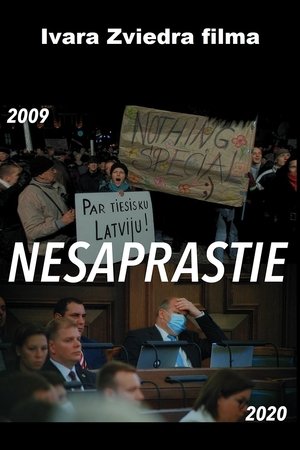
The Misunderstood(2020)
An attempt to understand the people chanting "Atlaist Saeimu!" (Sack the parliament!) year after year. Though rarely attracting a great deal of notice, there are always individuals collecting signatures for a referendum to dissolve the parliament for one reason or another, or simply standing outside the building and reciting their familiar mantra. Latvian governments change fairly often, but the parliament has been dissolved in line wth the Constitution only once, in 2010 (in 1934 it was dissolved unconstitutionally following a coup by Prime Minister Kārlis Ulmanis). The actual parliament building in Old Rīga was, however, attacked in January 2009 during a very rare violent protest which precipitated the fall of Ivars Godmanis' cabinet. The documentary zips back and forth in time giving portraits of various different people and political forces pushing the idea to "Atlaist Saeimu" for different reasons.

Movie: The Misunderstood

Nesaprastie
HomePage
Overview
An attempt to understand the people chanting "Atlaist Saeimu!" (Sack the parliament!) year after year. Though rarely attracting a great deal of notice, there are always individuals collecting signatures for a referendum to dissolve the parliament for one reason or another, or simply standing outside the building and reciting their familiar mantra. Latvian governments change fairly often, but the parliament has been dissolved in line wth the Constitution only once, in 2010 (in 1934 it was dissolved unconstitutionally following a coup by Prime Minister Kārlis Ulmanis). The actual parliament building in Old Rīga was, however, attacked in January 2009 during a very rare violent protest which precipitated the fall of Ivars Godmanis' cabinet. The documentary zips back and forth in time giving portraits of various different people and political forces pushing the idea to "Atlaist Saeimu" for different reasons.
Release Date
2020-11-24
Average
0
Rating:
0.0 startsTagline
Genres
Languages:
Similar Movies
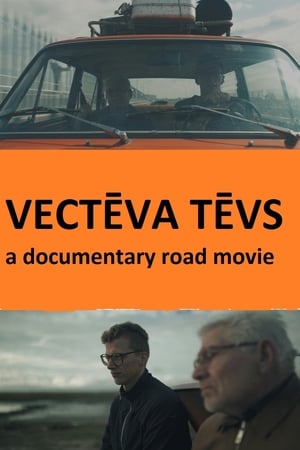 0.0
0.0Grandfather's Father(lv)
In this film a young man and his curmudgeonly grandfather are going 1,800 km to northern Russia in an old Zhiguli car, hoping to find the grave of their great-grandfather, who was deported. The grandfather Andris is sceptic over the lofty quest, initiated by his grand-son, as it’s not known what awaits them at their destination. Andris thinks they won’t find anything and will come back to Latvia without ever learning what happened to his father. However ever-optimistic Kārlis wants to use the journey not only to find answers about the past but also become closer to his grandfather who raised him. They both lost their parents as children.
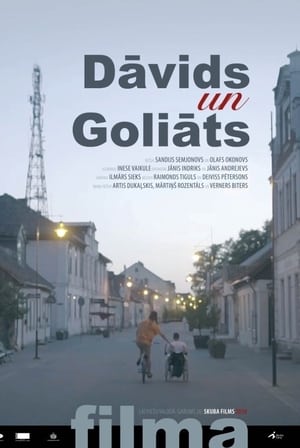 0.0
0.0David and Goliath(lv)
The documentary chronicles the life stories of two brothers, Kristaps and Krists. Kristaps, the elder brother, is disabled and has trouble talking, but he can rap. His younger brother Krists is one of the best freestyle BMX bikers in Latvia.
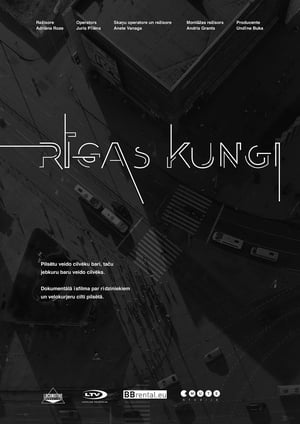 0.0
0.0Lords of Riga(lv)
Lords of Riga allows to see an insight into a passionate subculture of bike couriers. Weaving their way through the urban traffic, they have become silent and sometimes unnoticed witnesses of everyday life in Riga as well as examples of our modern-day society. What is freedom to this bunch of rebellious messengers and where it ends?
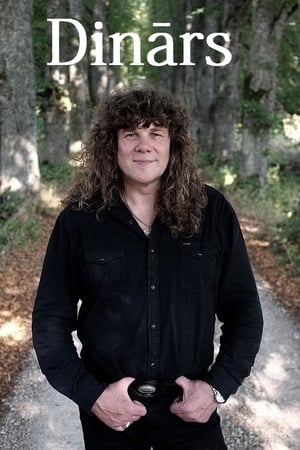 0.0
0.0Dinārs(lv)
Dinārs is a Latvian schlager singer popular with the ladies and known for his big cat mane. The eponymous film follows his path over a turbulent season of work.
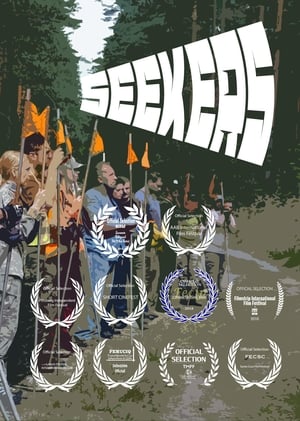 0.0
0.0Seekers(lv)
This film probes the activities of the bezvests.lv NGO that looks for missing persons and instructs others on how to find them. Since they started in 2009, they’ve helped find more than 90 people who had gone missing. It follows volunteers during training and on a search mission – theirs is a nerve-wracking task as in many cases they only locate the expired body of the missing person.
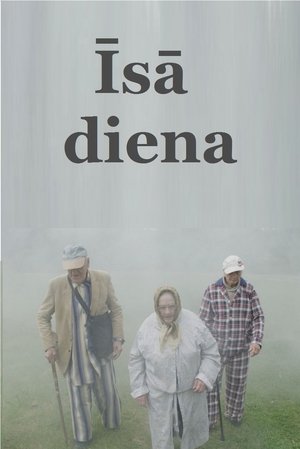 0.0
0.0Short Day(lv)
An ordinary old folks’ home on the Latvian border – one of many, where our parents, grand-parents and other relatives spend their old age. Theirs is the generation whose prime years co-existed with the Soviet Union, and who were promised: work, give all you can, and we’ll take care when you’re old. The system changed and the reality is different. How to live in this reality, accept the current rules, or live in the past and have regrets. We will touch upon their world, and the dreams and hopes of Vilnis, Imants, Alberts and Elizabete.
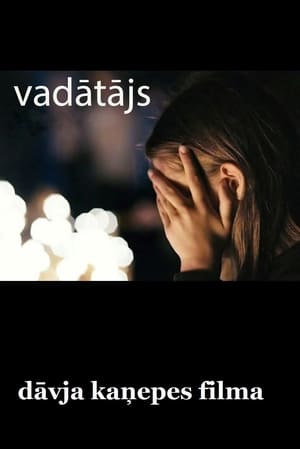 0.0
0.0Vadātājs(lv)
'Vadātājs' is an ancient Latvian mythological creature that leads people to Nowhere. As Latvia has been declared the most superstitious country in the EU, it is important to understand – what do we believe in? Three young filmmakers – a director, cinematographer and sound girl – question if Latvia is a lost country and if a Vadātājs has achieved enormous power by leading Latvian society into confusion. A search for a contemporary Vadātājs*, and the understanding of the origins of confusion within people in the 21st century.
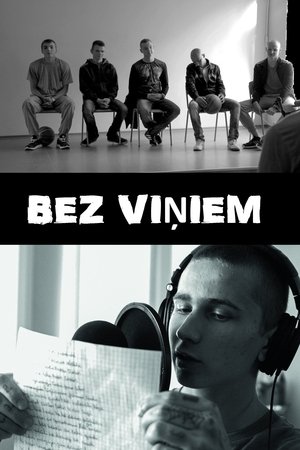 0.0
0.0Without Them(lv)
Six theater and hip hop teachers take on a five month challenge to show the Latvian public that young men behind bars are more than just that. While seeming impatient, full of disbelief and even rude at first, it turns out to be a superficial impression given off by their masks that must be kept on at all time as an underage colony is a difficult place to be. It has its own rules and it’s not easy being creative there. Teachers help inmates reveal the talents within them that help transcending the monotony of the prison walls.
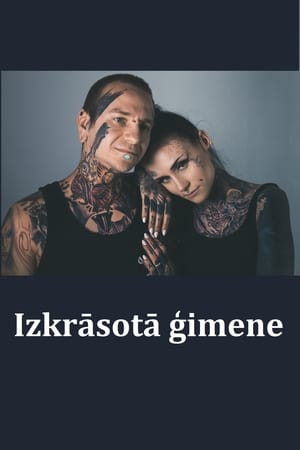 0.0
0.0The Inked Family(lv)
“The Inked Family” follows a couple of married Latvian-born tattoo artists – Anrijs and Monami Frost of online fame. They’re now living in Liverpool with their daughter, and their previous lives in Latvia seem almost surreal to them. The film traces Monami’s past, and the couple’s current lives and the success they’ve found as tattoo artists.
If Trees Could Talk(lv)
Deniss is a Russian-speaking young man working at a fast food chain and spending his days in a small, gloomy apartment where all the things still remind him of his dead grandmother. Once a week he takes the stage, becoming a stand-up comedian. His jokes come from his life, which might be called dull as well as bleak, and, as he puts it, his ‘uninteresting biography’.
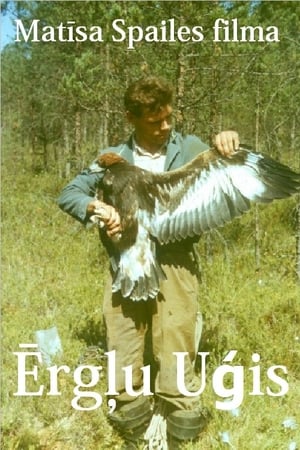 0.0
0.0Eagle Man(lv)
Latvia is home to almost one fifth of the world’s population of the lesser spotted eagle, yet their number is endangered. Uģis Bergmanis is one of Latvia’s best-known ornithologists, and he does his best to save the eagles in Latvia. He also has another passion – he hunts wolves. He can sit for hours in freezing temperatures until meeting his prey eye to eye. There are many stories in this man. And some of them are going to be told.
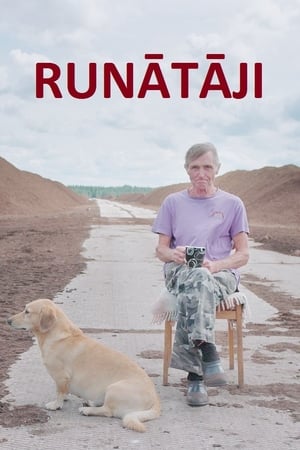 0.0
0.0Talkers(lv)
The three speakers represent two of the dialects, with the most common one - the middle dialect spoken in Riga and central parts of Latvia - not featured in the film. In intimate surroundings, a farmer, a schoolteacher, and a herder of ostriches talk about perceived differences between Latvian speakers, and about language policy and their lives.
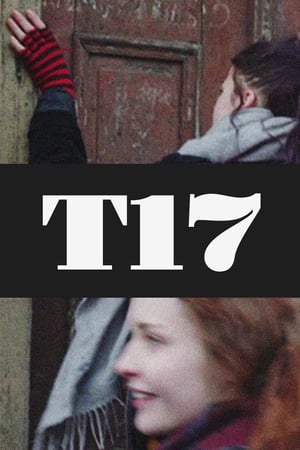 0.0
0.0Brīva vieta - Lastādija(lv)
Director Aija Bley's "Brīva Vieta - T17" captures the unique testimony of the modern era of Riga - the life of "antisquoters". The film tells about the daily life and dreams of the youth community and a mute fish, the so-called commune T17. The community lives in a non-landscaped building, so its occupation is a real challenge. The house is located under the paspārns of the association " Free Riga ", whose movement is based on a responsible attitude towards nature and the careful use of resources. Here, the community is motivated by the conviction that so few resources in everyday life should be consumed in the urban environment. The film follows the everyday life of the community members, who use their lifestyle to use the resources of nature, material, culture and time.
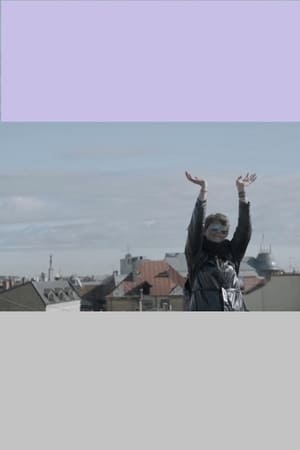 0.0
0.0Wordsmiths(lv)
Vārdotājas (Wordsmiths) traces the recent rise of women's stand-up comedy in Latvia, but it is by no means just for laughs. Feelings of discomfort, shame, shock, are just some of the subjects tackled.
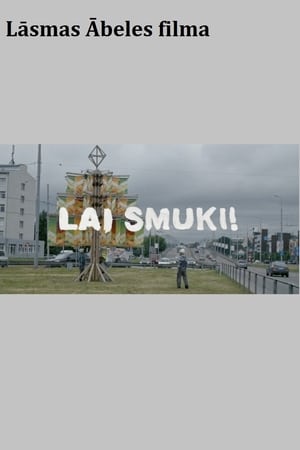 0.0
0.0Let's Make It Pretty(lv)
Two Rigans - Valentīna and Armands - make makeshift yard exhibitions by their homes out of objects they’ve found. They share the same hobby despite not knowing each other. As they’re decorating their little gardens of wonder for the upcoming Midsummer festival, it turns out that they too can find understanding and a sense of not being alone in their dreams.
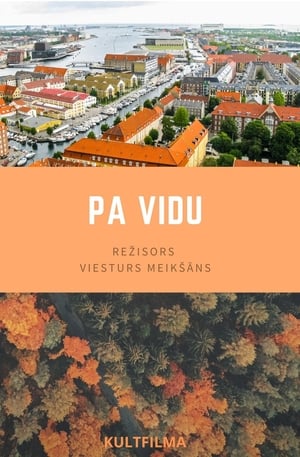 0.0
0.0In the Middle(lv)
A story of a Latvian family making tentative plans to return to Latvia. Ģirts, a doctor working in Denmark for nine years, receives an invitation to set up a professional practice back in Latvia – a welcome opportunity, as he would like to look after his parents better. But things aren't as simple as that, and his family is divided over the issue.
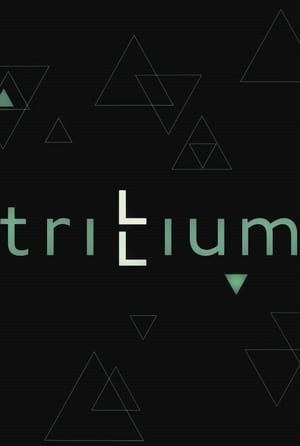 0.0
0.0Trillium(lv)
There are about 250 people with a unique ancestry. Livonians – one of the smallest and most endangered nations. Each of Livonians has a duty to preserve their identity and the great history of their ancestors. Trillium follows the footsteps of a poet and researcher Valts Ernštreits, who is one of 20 people able to speak fluent Livonian – an indigenous language related to Estonian and Finnish – in his efforts to look after the language and culture of these ancient settlers of the Baltic Sea coast.
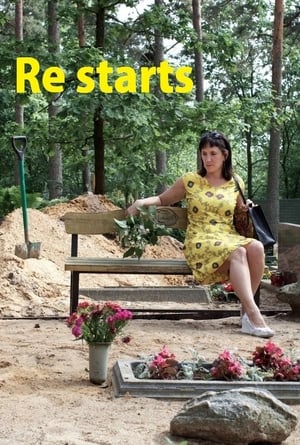 7.0
7.0Restart(lv)
The heroine is a widow and a fiancé who wants to begin a new and happy life. Conflicts in her family’s past prevent it, but she does not give up – she wants to clear away the ruins and do what she can. “Enough of looking for guilt, it’s time to find a solution,” she thinks, and takes action.
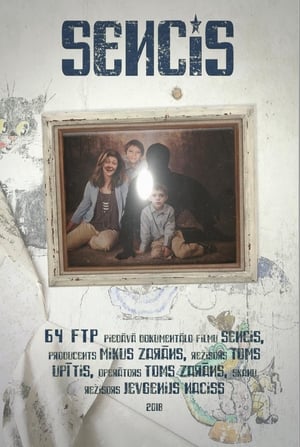 0.0
0.0Sencis: Old Man(lv)
A documentary that chronicles twin brothers searching for their absent father in faraway Russia. Having very few leads, the twin brothers – different in character and interests – are also looking for the ties that have never bound them as closely as they would have liked.
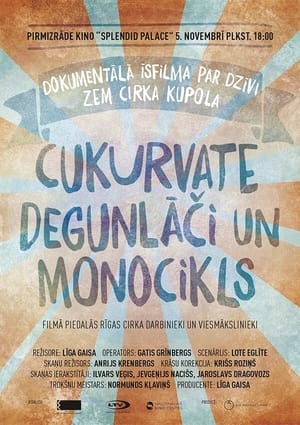 0.0
0.0Sugarcane, Coati and Monowheel(lv)
Nearly everybody has been to the circus to laugh about clowns, be afraid of the lions and to eat sugar cane. However, can anyone imagine that circus artists reside right there in the circus building - above the arena in the second floor hotel rooms - where they also prepare meals, do their laundry and try out their magic tricks? For over 125 years, despite the discomfort of non-renovated premises and ubiquitous animal odor, local and foreign circus artists follow their routine to create the circus miracle. Sugarcane, Coati and Monowheel is a film about those who dwell in Riga Circus and about what happens outside the arena before and after meeting audience under the circus dome.